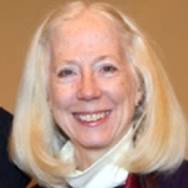
- This event has passed.
Global Sustainability Across the Curriculum Program Development Support Group
July 18, 2023
Applications for this program are now closed. Stay tuned in Spring 2024 for a new application round. If you are interested in receiving information when the program re-opens, please fill-in this short form.
 Addressing climate change and other urgent sustainability challenges with the necessary scale and speed will require the support and involvement of large segments of the population across a wide variety of occupational roles. Higher education can be a key leverage point to accelerate this process because students are already absorbing new knowledge, engaging in critical reflection, and are more open to new visions of the future than at later points of life. Sustainability-focused courses of study are emerging in many schools, but these majors and minors can only reach a small number of students. To support broad cultural change, sustainability knowledge and adaptive competencies must be integrated into diverse courses across the curriculum. Such an approach will reach students with all kinds of interests, and build leadership capacity, in fields as diverse as data science, nursing, and engineering.
Addressing climate change and other urgent sustainability challenges with the necessary scale and speed will require the support and involvement of large segments of the population across a wide variety of occupational roles. Higher education can be a key leverage point to accelerate this process because students are already absorbing new knowledge, engaging in critical reflection, and are more open to new visions of the future than at later points of life. Sustainability-focused courses of study are emerging in many schools, but these majors and minors can only reach a small number of students. To support broad cultural change, sustainability knowledge and adaptive competencies must be integrated into diverse courses across the curriculum. Such an approach will reach students with all kinds of interests, and build leadership capacity, in fields as diverse as data science, nursing, and engineering.
Evidence from several pioneering curriculum change initiatives indicates that intensive workshops for faculty can bring about lasting change, not only in curriculum but in research interests and personal lives, even years after the workshop is over (Barlett and Rappaport 2009). In particular, the Sustainability Across the Curriculum Model of Faculty Development, based on Northern Arizona University’s Ponderosa Project and Emory University’s Piedmont Project, has emerged as a leading model for faculty development and curricular innovation around sustainability. The model has been employed by hundreds of institutions and found to be effective with small liberal arts schools, large Research 1 institutions, public and private universities, and community and technical colleges (Barlett and Chase 2013)
Unfortunately, adoption of the sustainability across the curriculum model has been most common at well-resourced institutions, which limits the proportion of higher education faculty who are able to benefit from this model. In an effort to address this problem, AASHE is organizing a support group to further develop and spread this impactful approach to curriculum change to new institutions. This support group will guide participants through the key steps involved in establishing a successful sustainability across the curriculum program at their institution, including:
- Building a leadership team
- Securing financial support
- Attracting faculty participants
- Supporting faculty creativity in revising courses
Participants in the support group will engage in lively discussions with a cohort of peers from diverse schools to share strategies, allies, and ways to overcome challenges in building strong curriculum development programs. They will also benefit from one-on-one consultations with experienced program leaders. Active participants in the support group will have the opportunity to apply for modest grants (up to $5,000) to help develop their sustainability across the curriculum programs (e.g., for faculty stipends).
Key Details
Timeline
Support group participants will meet virtually once a month starting in July and continuing through at least February 2024.
Registration Fees
Thanks to support from Microsoft Philanthropies, AASHE is able to offer this program at no cost to participants.
Eligibility
This support group is designed specifically for faculty leaders who are seeking to establish a sustainability across the curriculum program at their institution. Applicants should already have some experience teaching sustainability-related content and a readiness to develop and apply skills as a workshop facilitator. Ideally, participants will be established faculty members at institutions that have signaled some readiness to expand faculty development offerings in this direction. Individuals from schools that have offered such a program in the past but do not currently have an active program are also welcome to apply. Only one applicant per institution will be accepted so as to keep the group size manageable and intimate.
To ensure that participants are prepared to hit the ground running, we expect all participants to have previously attended a workshop that familiarizes them with the basics of the sustainability across the curriculum model of curriculum change. For those who have not already attended such a workshop (or just want a refresher), AASHE is offering a two half-day training on “Building a Curriculum Development Program for Your Institution: The Piedmont/Ponderosa Model” on June 15 and 22.
As a major goal of this support group is to increase access to the sustainability across the curriculum model, we are particularly seeking participants associated with Minority Serving Institutions, community and technical colleges and institutions in the Global South.
Application process
To be considered to join the support group, please complete the application form by Friday, May 12, 2023. We will review applications on a rolling basis starting in April.
Facilitator
Peggy Barlett, Goodrich C. White Professor Emerita, Department of Anthropology, Emory University
 The session will be led by Peggy Barlett who spearheaded the Piedmont Project at Emory University for 15 years. In the last fifteen years, Peggy and her colleague, Geoffrey Chase formerly of San Diego State University, offered an in-person two-day version to over 600 faculty leaders from around the US and eight foreign countries. Peggy and Geoff also co-edited Sustainability in Higher Education: Stories and Strategies for Transformation (MIT 2013) and Sustainability on Campus: Stories and Strategies for Change (2004).
The session will be led by Peggy Barlett who spearheaded the Piedmont Project at Emory University for 15 years. In the last fifteen years, Peggy and her colleague, Geoffrey Chase formerly of San Diego State University, offered an in-person two-day version to over 600 faculty leaders from around the US and eight foreign countries. Peggy and Geoff also co-edited Sustainability in Higher Education: Stories and Strategies for Transformation (MIT 2013) and Sustainability on Campus: Stories and Strategies for Change (2004).
Peggy, the Goodrich C. White Professor Emerita in the Department of Anthropology at Emory University, is a specialist in agricultural anthropology and sustainability in higher education. A leader in bringing Emory to its current commitment to a sustainable future, her work focused on faculty development, curriculum, sustainable food, and culture change. She has written on the challenges of transforming higher education in articles in Current Anthropology, American Anthropologist, College Teaching, and Liberal Education and has led workshops on curriculum development on many campuses.
Advisors
The following individuals are providing advice and guidance in the development of this support group:
- Geoffrey W. Chase, San Diego State University, emeritus
- Beverly Daniel Tatum, Interim President, Mt. Holyoke College
- Lindsey Lyons, Director of Sustainability Learning, Dickinson College
- Marianella Franklin, University of Texas, Rio Grande Valley
- Michaela Zint, Associate Dean for Academic Affairs, University of Michigan
Any questions about the workshop?
Please contact Daita Serghi, education@aashe.org